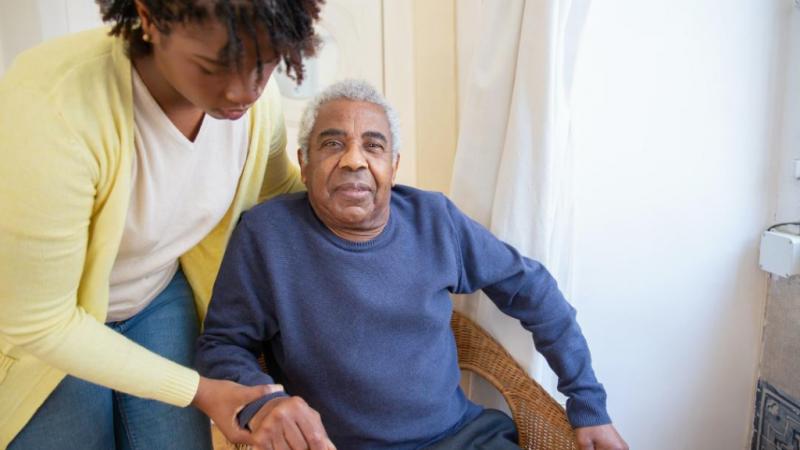Caring for the Caregiver: Avoiding Caregiver Fatigue and Burnout

In the United States, it is estimated that 1 in 5 adults are providing unpaid care to either friends and/or family that have chronic illness or a debilitating condition. Almost half of these adults themselves are also greater than 40 years of age, provide caregiving for an average of 30 hours per week, and also use some of their annual income for caregiving.
With these factors in place, it is not surprising that many caregivers feel fatigued or burnout. What used to be a rewarding experience and an act of love soon turns disheartening and becomes a burden.
Why it happens
Caregiver fatigue and, if left unchecked, burnout, happens mostly because caregivers are often so busy tending to others' needs that they neglect their own health.
Other reasons include the following:
- A lack of control over the resources and skills needed to plan and organize care.
- Unreasonable demands by family members and friends placed on the caregiver, e.g. seeing it as someone's sole responsibility
- An inability to recognize their own limitations.
- Confusion about roles and responsibilities, and conflating duties in other roles (e.g. as a spouse, child, parent) with those as a caregiver
- Unrealistic expectations about the health of the patient who may have something chronic and progressive. This is important especially in patients with dementia who are getting worse; caregivers may feel that they are not doing their work properly.
Recognizing caregiver fatigue
Caregiver fatigue presents similarly with generalized anxiety and depression due to the stress they under. It is important to recognize the signs and symptoms of caregiver fatigue so that the situation can be addressed in a timely manner.
- Lack of energy
- Overwhelming fatigue
- Difficulty sleeping or sleeping too much
- Sudden weight loss or weight gain
- Difficulty handling daily stressors
- Difficulty concentrating
- Drinking or smoking more
- Difficulty relaxing
- Neglecting own physical, emotional, and material needs
- Beginning to be impatient and even resent the person being cared for
- Having feelings of wanting to hurt yourself or the person you are caring for
- Feeling hopeless most of the time
- Feeling angry most of the time
- Not being interested in previous hobbies or enjoyable activities
- Prevalent mood swings
- Being anxious about the future
- Having somatic symptoms such as headaches and stomachaches
- Getting sick more often (sign of a depressed immune system)
Strategies to avoid caregiver fatigue and burnout
The best advice to avoid developing caregiver fatigue and burnout is a change in mindset: your health, as a caregiver, is a necessity and not simply a luxury. For you to be able to care for your loved ones, you have to be in a good state physically and mentally.
Here are other steps that you can take to help prevent caregiver fatigue and burnout.
- Remember that you are not alone. Even as a primary caretaker, you have resources around you that you can tap into. For example, local charity organizations may have support groups that may be helpful for you and/or your loved one in terms of material and emotional support.
- Find someone you can trust to confide in and perhaps even to relieve you of your duties some of the time. Counselling from therapists and social workers may also be of aid in dealing with the stress.
- When necessary and possible, spending money on nursing care services, whether it's a few hours of care at home or at an assisted facility, can be a welcome break for you. It will allow you to rest and also is good for your peace of mind.
- Ask for help, even if it's not directly related to caregiving. This help may be in the form of chores (e.g. cooking, doing laundry) and/or company.
- Strive to set time to take care of yourself. Eat healthily, get enough sleep, and try to get adequate exercise. In line with this, if you find yourself reaching for alcohol or cigarettes to cope, involve an accountability buddy to help you find better ways of coping. This includes things you like doing and that relaxes you, such as taking a long bath, going shopping, hanging out with friends while camping, etc.
- Be informed about your loved one's prognosis, progress, and natural history of disease. This is especially important when your loved one has a progressive disease. Even if he/she deteriorates, rest assured that you have done your best.
- Accept that feeling tired, angry, hopeless, and other negative feelings are normal. It doesn't mean you are a bad caregiver. In fact, this may be a sign that you need a break!
- Give yourself a pep talk. Remind yourself why you are caring for your loved one in the first place. Remembering that it is out of love, even if he/she can no longer appreciate it due to their disease, should ease some of the fatigue and discouragement. Imagine what he/she would say in gratitude were he/she to recover or was healthy!
Conclusion
It is a privilege to share ourselves in service of someone we love, and the experience, lessons learned, moments spent together, and the impact made in each other's lives is impossible to measure. May your journey caring for your loved one be a peaceful and rewarding journey!
More to Read:
Previous Posts:
Next Posts:




